What is Sleep Hypnotherapy and How Does It Work?
Hypnotherapy is an unconventional and sometimes controversial form of therapy. But that doesn’t stop it from being a popular option in holistic therapy circles. Hypnotherapy uses guided hypnosis to create a state of increased suggestibility and focus. Under hypnosis, trained professionals can help reduce stress, increase relaxation, and alleviate certain issues including unhealthy behaviors and phobias. The main objective of hypnotherapy is to help patients change their negative thoughts and behaviors in an effort to improve their lives.

If you’re facing sleep troubles, hypnotherapy may offer much-needed relief. While this form of psychotherapy doesn’t guarantee results, it’s a viable option for insomnia sufferers looking for an alternative way to improve their sleep quality. In the process, you may also find relief for stress, anxiety, and other negative thoughts and behaviors that are triggering your condition.
Keep reading to learn more about sleep hypnotherapy and if it’s the right insomnia treatment option for you.
Content
How Hypnosis Works
Hypnosis and hypnotherapy have unfairly received a bad reputation over the years. This is due mostly in part to artists and performers creating comedy routines that show participants engaging in ridiculous and embarrassing behaviors while under hypnosis. These outlandish antics make some people highly skeptical of the potential benefits of hypnosis. Before you discredit this form of therapy, let’s discuss what hypnosis is and how it works.
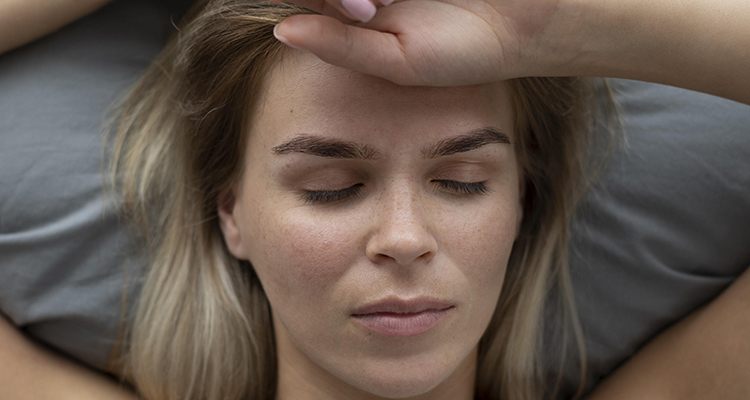
When someone is under hypnosis, they’re in a sleep-like state of awareness. While you’re not completely unconscious, you’re not fully awake either. By focusing on a specific idea or image, you reduce your peripheral awareness and enter a calm, trance-like state. At this point, your brain activity changes, making you more receptive to new and different ideas. Now, the therapist can make suggestions that positively influence your thoughts and actions.
Despite popular belief, hypnosis isn’t a form of mind control. Instead, you’re more open to suggestions but still in control of making decisions. One preconceived notion about hypnosis that does have some truth to it is that some people are more open and easily hypnotized than others. Research as to why is ongoing but some studies suggest the more open a person is to the benefits of hypnosis, the more easily they can enter a trance-like state.
What is Sleep Hypnosis?
Sleep hypnosis is a form of hypnotherapy used to treat insomnia and other sleep problems. The goal of this technique is not to make you fall asleep during the session but instead to change the way you think and respond to your insomnia. Under hypnosis, the therapist will work to change any negative thoughts you have or unhealthy behaviors related to sleep. Once the session is complete and you’re faced with these same negative thoughts and fears in daily life, you’ll approach and handle them differently. By altering your feelings about certain ideas and habits, you may be able to make positive changes to improve your sleep quality.
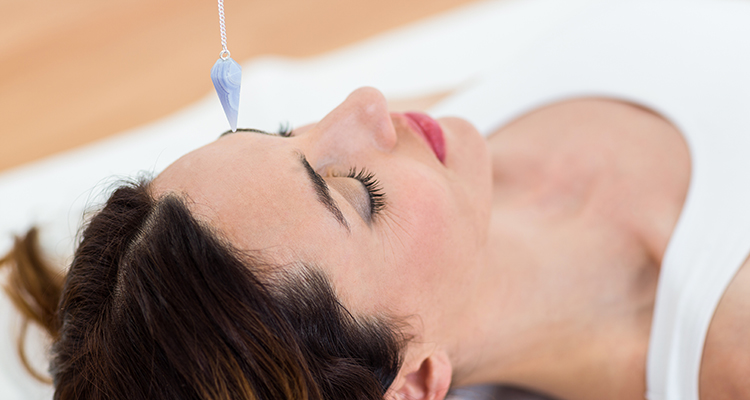
In most cases, sleep hypnosis is combined with other forms of therapy including CBT-I (cognitive behavioral therapy for insomnia) as well as lifestyle changes like adopting healthy sleep routines and setting a sleep schedule. Hypnotherapy for sleep uses therapeutic suggestions to address insomnia triggers. For example, during hypnosis, the therapist might suggest feeling less anxious about not falling asleep and suggest different ways to relax and prepare for sleep. The therapist you choose can create a customized experience based on your specific needs. If you’re having recurring nightmares, hypnotherapy can help you deal with whatever traumatic event is causing them. Some studies show hypnosis can even help with pain management which is important if chronic pain is keeping you up at night.
Does Sleep Hypnotherapy Work?
The only way to know if sleep hypnotherapy will work for you is to try it but there are several studies and theories that support this alternative form of insomnia treatment.

Similar to other forms of therapy, hypnosis works to address the underlying cause of your insomnia. Things like depression, anxiety, stress, and pain can all cause sleep disturbances. Hypnotherapy works to change your thoughts and feelings, reducing negativity and putting you in a better mind frame for sleep. Other physical changes occur during hypnosis that may promote sleep. For example, one study showed that using suggestions for “deeper sleep” resulted in increased slow-wave sleep in some patients.
Research on the benefits and effectiveness of hypnotherapy for sleep is still ongoing but most studies recommend using this technique alongside other sleep treatments.
Sleep Hypnotherapy Steps
While every hypnosis session is different and every therapist has their own approach, most follow the same basic steps. Here’s a brief overview of what to expect during your first hypnosis session.
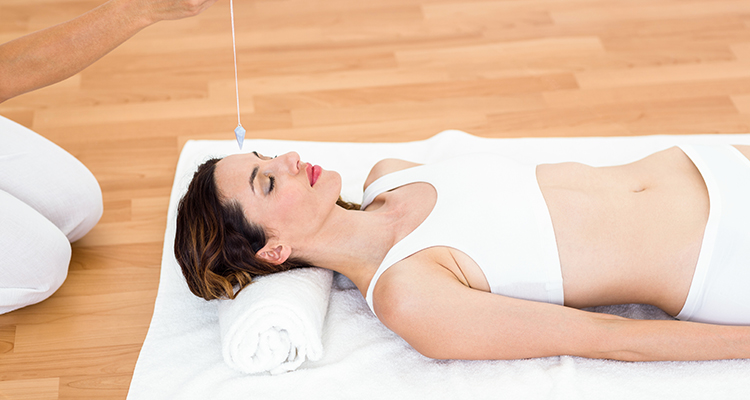
Intake and Consent
The hypnotherapist will start with an open conversation to establish trust and learn more about your specific sleep troubles. They will explain the risks (more on these later), benefits, and get your consent to proceed.
Hypnosis
When the hypnosis session begins, the therapist will encourage you to relax both mentally and physically. This can be a hurdle for some people who struggle to let go of pent-up stress. Deep, calming breaths can help with this. Some therapists will suggest you lay on a couch or sit comfortably in a chair or on the floor. Once you’re physically comfortable, you’ll be asked to focus on a calming mental image.
Deepened State of Relaxation
It’s now time to transfer into a deepened state of relaxation. Now the therapist will ask you to envision a metaphor. Popular examples are descending a staircase or walking down a wooded path. These metaphors are used to help engage your imagination. Because they’re figurative, you can’t over-analyze them, shifting your brain from problem-solving mode to a more relaxed state.
Making Suggestions
Once you’re completely relaxed and in a trance-like hypnotic state, the therapist will begin making suggestions. These suggestions are designed around your specific goals. When it comes to treating insomnia, the therapist may suggest healthy sleep habits and how to set a sleep schedule. They may also address any underlying mental health issues including anxiety, stress, and chronic pain.
Ending the Session
After the therapist is done making suggestions, they gently guide you out of your hypnotic state. This is usually done slowly and with a calming voice. The therapist will ask you to slowly become more aware and awake. Most people come out of a state of hypnosis within a few minutes.
Is Self-Hypnosis Possible?
Most people are familiar with guided hypnotherapy offered by an experienced professional. While this method is often most effective, self-hypnosis may offer its own set of benefits. These therapy sessions are done using apps, videos, or audio recordings. Playing a hypnosis audio clip before bed or while you’re sleeping may help subconsciously alter your thoughts and feelings. This is a viable approach for anyone not comfortable with in-person therapy. You can also use a mix of both techniques by recording your hypnosis session and then using these recordings at home. In most cases, it’s best to consult with an experienced therapist before taking matters into your own hands.

Risks of Sleep Hypnotherapy
Most forms of therapy come with minor risks or at least things to consider before diving in headfirst. And sleep hypnotherapy is no different. Hypnotherapy is considered relatively safe when performed by a professional (which is another reason self-hypnosis is not recommended). In some rare cases, patients experience adverse side effects. These include developing confabulations (false memories), headaches, dizziness, and increased anxiety. Patients struggling with serious mental health disorders including PTSD, bipolar, or schizophrenia should use caution when trying hypnotherapy and only do so under the strict guidance of an experienced therapist.
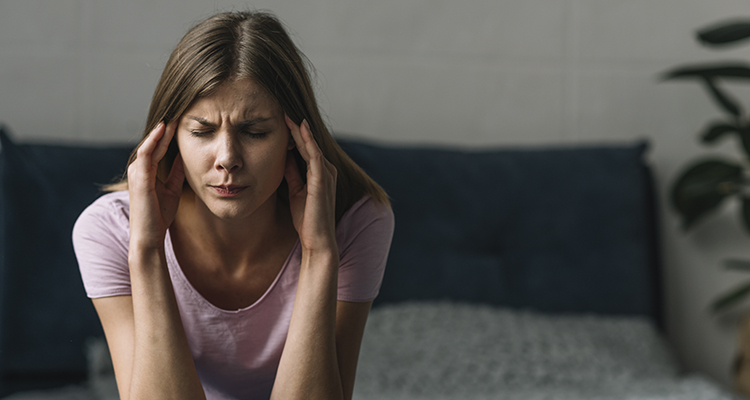
How to Get the Most Out of Sleep Hypnotherapy
When it comes to sleep hypnotherapy, your approach and mindset are everything. There are certain things you can do to support the hypnosis process and get the most out of every session.

Ask for Resources
After your session, ask the therapist for follow-up resources and tips. Implementing additional changes at home can reinforce the suggestions they made and promote future progress. Things like recorded tapes, relaxation techniques, calming music, and other at-home hypnosis activities can help build upon your success.
Create a Consistent Routine
Habits influence behaviors. When you create a consistent sleep routine and schedule, your body will start to perform certain behaviors automatically.
Things like going to bed at the same time every night and turning off electronic devices an hour before going to sleep can support a healthy circadian rhythm. You can also create a positive sleep environment by keeping your bedroom dark, cool, and relaxing. Invest in comfortable bedding, a white noise machine, or room darkening shades. Reserve your bed for sleep and sex only. If you find yourself lying awake for more than 15 minutes, get up, perform a relaxing ritual and only return to bed once you feel tired enough to sleep.
Pay close attention to which techniques are working and which ones need adjusting. Creating healthy sleep patterns and routines is a constant work in progress.
Practice Stress-Reducing Activities
If stress or anxiety are causing your insomnia, adopting stress-reducing practices can not only ease symptoms but may also improve your response to hypnotherapy. The premise of hypnosis is to enter a state of relaxation and focus. This can be difficult if you’re also dealing with stress, depression, or an anxiety disorder.
Things like mindfulness, meditation, and yoga can all reduce stress and make it easier to relax and focus during hypnotherapy. Guided imagery and breathing exercises are also beneficial. Try adopting an exercise routine to promote your physical health and mental well-being. Not only will this put you in a more positive, open mind frame but exercise is said to reduce insomnia and help you fall asleep faster.
Schedule a Follow-Up Visit
One hypnotherapy session may not result in significant changes to your sleep patterns. It may take a few sessions and plenty of honesty with your therapist. After each session, take note of your sleep quality, stress levels, and daytime energy. Write down any new problems that arise or other issues you’d like to address. In time, your therapist will likely recommend fewer appointments and offer resources for you to use at home.
Explore Different Therapy Methods for Sleep
There are countless therapy options for treating insomnia and other sleep disorders. In most cases, a combination of therapies is the best way to treat your unique issues. Hypnotherapy is a form of holistic therapy that taps into your subconscious thoughts and feelings to help alter your behaviors. Adopting other healthy sleep habits and scheduling follow-up appointments with your therapist can facilitate the healing process.
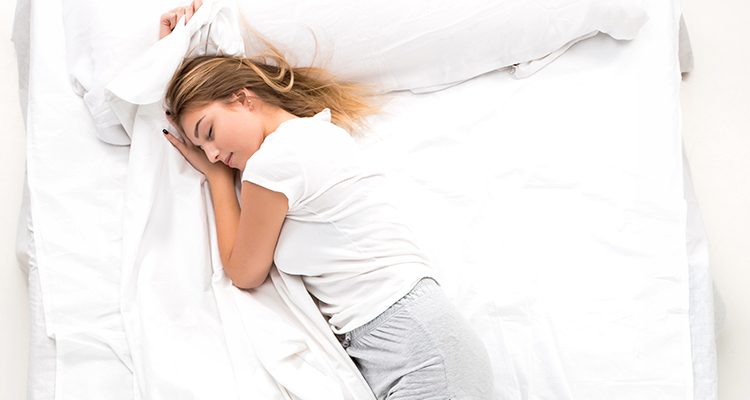
At Somnus Therapy we explore and offer a wide range of therapies including CBT, stimulus control therapy, restrictive sleep therapy, and cognitive restructuring. Click here to learn more about our methods and how they can support your journey toward better, deeper sleep.
















